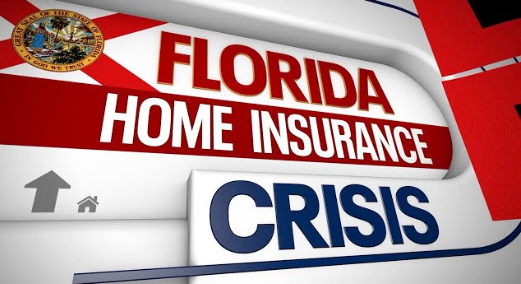Florida Home Insurance Crisis: What Homeowners Need to Know
Florida is facing an unprecedented home insurance crisis, with skyrocketing premiums, insurer insolvencies, and reduced coverage options leaving homeowners struggling to find affordable protection. This guide examines:
-
Why Florida’s insurance market is collapsing
-
How much rates have increased
-
What homeowners can do to save money
-
Government responses and potential solutions
By the end, you’ll understand the full scope of the crisis and how to navigate it.
Why Is Florida’s Home Insurance Market in Crisis?
Florida’s insurance turmoil stems from a perfect storm of factors:
1. Frequent Natural Disasters
-
Florida leads the U.S. in hurricane risk, with storms like Ian (2022) causing $113 billion in damage.
-
Flooding, sinkholes, and tornadoes further strain insurers.
2. Rampant Roofing Fraud & Litigation
-
Questionable roof claims (often from contractors pushing unnecessary replacements) have led to fraudulent lawsuits.
-
Florida accounts for 76% of all U.S. home insurance lawsuits but only 9% of claims.
3. Insurer Bankruptcies
-
12 Florida insurers collapsed between 2020–2023.
-
Major carriers (Farmers, Bankers Insurance) have exited the state.
4. Reinsurance Costs Soaring
-
Insurers rely on reinsurance (insurance for insurers), but prices have doubled since 2020.
How Much Have Florida Home Insurance Rates Increased?
| Year | Average Annual Premium | Increase vs. National Average |
|---|---|---|
| 2020 | $1,988 | 42% higher |
| 2022 | $4,231 | 200% higher |
| 2024 | $6,000+ (estimated) | 300% higher |
Most Expensive Florida Counties for Home Insurance
-
Monroe County (Key West) – $9,000+
-
Miami-Dade County – $7,500+
-
Broward County – $6,200+
What’s Being Done to Fix the Crisis?
1. Legislative Reforms (2022–2023)
-
SB 2A (2022):
-
Bans assignment of benefits (AOB) scams.
-
Limits attorney fee incentives in lawsuits.
-
-
HB 799 (2023):
-
Requires stronger insurer financial reserves.
-
Adds $1B in reinsurance relief.
-
2. State-Backed Insurer of Last Resort (Citizens Property Insurance)
-
1.3 million policies (up from 500,000 in 2020).
-
Risk: If a mega-disaster hits, all Florida policyholders may face hurricane taxes to cover losses.
3. Federal Proposals
-
National Catastrophe Insurance Fund (proposed but not yet passed).
Read More : what is the primary difference between homeowners insurance and renters insurance?
How Can Florida Homeowners Save on Insurance?
1. Mitigation Upgrades (Discounts Available)
-
Hurricane Shutters – Up to 30% off premiums.
-
Impact-Resistant Roof – 25–40% savings.
-
Wind Mitigation Inspection – Required for discounts.
2. Shop Around Annually
-
Compare at least 5 insurers (private + Citizens).
3. Raise Deductibles
-
Higher deductibles = Lower premiums (but ensure you can afford out-of-pocket costs).
4. Bundle Policies
-
Auto + Home bundling saves 10–25%.
5. Avoid Filing Small Claims
-
Too many claims = higher rates or non-renewal.
Will the Crisis Improve Soon?
Short-Term (2024–2025)
-
Premiums will keep rising (but slower than 2022–2023).
-
More insurers may leave if hurricane losses spike.
Long-Term (2026–2030)
-
If reforms reduce lawsuits & fraud, rates could stabilize.
-
Climate change remains a wild card.
FAQ: Florida Home Insurance Crisis
1. Why is Florida home insurance so expensive?
-
Hurricanes, fraud, lawsuits, and reinsurance costs drive up prices.
2. Is Citizens Insurance a good option?
-
Only if private insurers deny you (it’s meant as a last resort).
3. Can I be denied coverage in Florida?
-
Yes, if your home is too old or in a high-risk zone.
4. Will moving to inland Florida lower my rates?
-
Yes (but only by 10–20%; hurricanes still impact inland areas).
5. What’s the cheapest Florida home insurance?
-
Tower Hill, Security First, and Slide Insurance offer lower rates.
Final Advice for Florida Homeowners
-
Get multiple quotes yearly.
-
Invest in storm-proofing upgrades.
-
Consider a higher deductible.
-
Monitor legislative changes.
The crisis won’t end overnight, but smart planning can help you survive it. Compare quotes today to find your best option!




